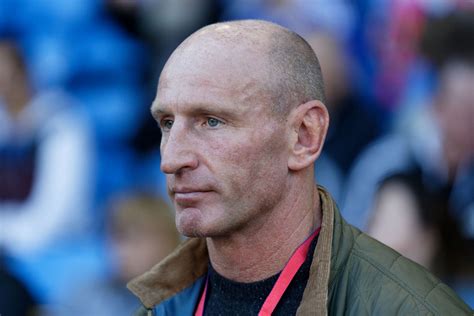A Quote by William Faulkner
I am trying to say it all in one sentence, between one cap and one period.
Related Quotes
I am human. I am messy. I'm not trying to be an example. I am not trying to be perfect. I am not trying to say I have all the answers. I am not trying to say I'm right. I am just trying - trying to support what I believe in, trying to do some good in this world, trying to make some noise with my writing while also being myself.
I have to do the work of self-love and affirmation, and say, "I am a woman, I am a person of color, I am the granddaughter of immigrants, I am also the descendant of slaves, I am a mother, I am an entrepreneur, I am an artist, and I'm joyful." And maybe in seeing my joy, you can finish your sentence with, "And I am joyful too."
It's kind of like sentencing. A lot of people say that we have a heavy sentence for this crime and a light sentence for another crime, and what we ought to do is reduce the heavy sentence so it's more in line with the other. Wrong. In most cases we ought to increase the light sentence and make it compatible with the heavy sentence, and be serious about punishment because we are becoming too tolerant as a society, folks, especially of crime, in too many parts of the country.






































